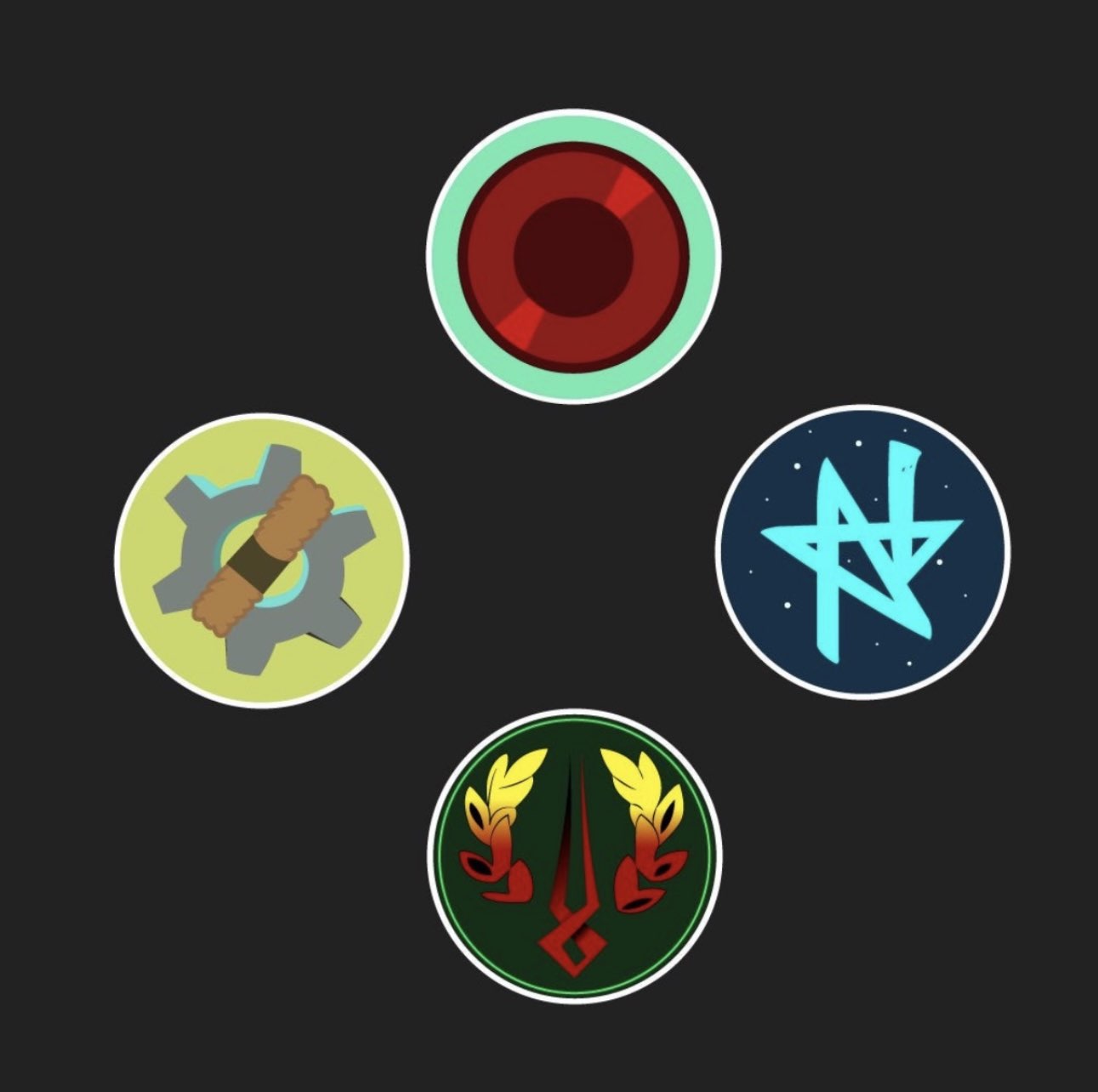Are there portable wind turbines and/or solar panels I can put up in my very bright dusty back yard?
You probably can’t get anything that properly powers your house because that would need to connect to the grid, but there are small solar arrays you can get for stuff like camping or boats which could probably power some devices. Might have to be via a battery as I suspect the output is variable.
So a camping set up moving to a battery that I can charge smaller things like phones off of?
Check out “solar generators”. They take input power from something variable like a solar panel, recharge their internal battery, and then provide lots of different outlets to power or recharge various devices. So, mostly “just” a battery, but very well set up for exactly this kind of thing.
I’ve been really happy with our electric Makita products. When our propane generator kicks it (and I’m pretty sure I can keep that thing running for the next thirty, but I want a solar generator sooner) I want a Makita solar generator
I’m with you there, but judging by Makita’s complete lack of battery development in the last 20 years I don’t see that happening
I haven’t been watching that too close . We swapped our gas yard tools for makita ones recently because we liked the hot swappable batteries. I don’t remember how recently because the we in that is the landlord. They asked my advice and I’d used a makita before and liked it. I do yardwork and handiwork here as part of my rent anyways I’m rambling. I always figured makita contracted out their batteries, but I’m not part of their supply chain.
Bah just run everything offa extension cords like we do with the generator when the power goes out sure it’s more hassle than it’s worth but you get to stick it to the man
You can have a switch such that you use “Shore Power” / the grid when your batteries are low and your batteries when they are full.
For anyone interested: I absolutely do not recommend as a DIY project, hire an electrician. You will kill yourself by stopping your heart or burn your house down. Or both. At the same time.
I’ve heard this described as an island switch (making your home an island, cut off from the rest of the grid). I don’t think it’s appropriate for renting though, you’d surely need to make permanent alterations to the house’s electrical circuits.
ah. True. Wasn’t thinking about the modifications required and renting.
You don’t want to install anything permanent since you’ll have to remove them when you move out. You can get portable solar panels + those big Anker portable batteries that can run full sized appliances. But a more meaningful way to help the environmenf is to do composting. Up to 80% of the weight of your household waste is compostable material. Simply composting them drastically reduces the amount of waste from your house to the landfill. Plus no more smelly watery garbage bags and now you can plant veges.
Thing is, most of our trash that isnt recycled is packing material for the food. We really dont waste much food in my household
Also, given OP’s “very bright dusty” back yard, it’s likely water is a concern. So, collecting and reusing rain water for a shade garden could be also be a big improvement for general sustainability (plus energy savings).
Am a renter. Recently got two solar panels installed, maxing out at about 600 watts. It’s called a balcony power plant and you essentially just plug it into an ordinary outlet.
Seconded, same here, though if OP lives in the US chances are that’s illegal.
However, OP, it’s still worth a try imho if you have a way of doing it semi-stealthily. I got four used 220Wp panels, a used DC to ac converter and then plugged that right into an outlet. Now when the sun shines, we generate between 2-4kWh per day, which is usually used right up by appliances and chargers. We figure we’ll break even in 3-4 years, but that’s a bit skewed because of high electricity prices here on Germany and the low upfront costs of getting everything used and then installing it on our slanted sunroom roof conveniently facing southwest
Why would that be illegal?
The line workers would not be aware of power coming from the load side and therefore may accidentally work on a live line and die.
Most rooftop solar that plugs into the grid is set up to switch off if power goes out for this reason.
This is mostly and educated (from a solar class years ago) guess.
This is right. A proper system has a transfer switch that prevents back feeding the grid if it’s down. There’s also a safety aspect in that supplying power to the branch circuit in this way bypasses the overcurrent protection, so one could potentially be loading that circuit with 5 A on top of its rated load and cause significant damage.
If a person wants to offset their electricity at this small scale, better to have it powering a shed or charging power tool batteries. Won’t get as good a return, but you’d never get a return on a permitted grid tied system at that scale either.
Would you not have to get a proper switch installed? We have a diesel generator in our house (countryside, unreliable power) and we had to get a big isolater switch, so when the switch is set to generator, nothing can go back into the grid.
deleted by creator
Depending on where you live, yes. We have a setup of 4 panels placed in the backyard connected to an inverter and some batteries. It’s technically temporary so legal where we are, basically a large solar charged battery bank.
Check with your power company if they offer options for electricity from renewable sources
This, I have to pay a small extra fee to my utility but in return they must buy 100% of the energy I use from wind. It’s not the most impactful arraignment, but it’s a small way I can encourage my utility to invest in wind.
Some have community solar too that you can “buy” panels and in return the energy they produce is deducted from your bill, minus a fee for them to host and maintain the equipment of course.
You can choose utility companies that use renewables or plans within. My electric company has a ‘renewables first’ type policy where you only get non renewable power if there’s a surge of use.
Sadly not an option in many places in America. Where I live I have one and only one option for electricity.
The problem is you have no safe way to connect them without building a totally separate electrical system, since they have to be separated from your grid connection. Let me suggest an alternative “alternative energy”: LiFePo battery packs/banks are available in a wide variety of sizes, they require no outdoor connections and don’t have to be interconnected with each other as they can operate independently and standalone. What you can do is charge them from the grid at low-power-usage times (typically overnight, when the wind farms are spinning, dams are flowing, and nuclear is nuclearing with nobody to use it). Then unplug them during the day and run stuff in your house off battery power, potentially all day long if they’re big enough. Technically this is only energy storage, not energy production, but it’s an important part of the alternative energy landscape, as energy is very hard to store and renewables like wind and solar depend on the grid’s ability to do so, which you will be helping it to do.
They are sometimes sold as battery “generators” for RV/camping as the modestly sized ones can fill a portable role similar to small gasoline generators. Many of them include charging ports for solar too, so you can add solar modules on as well if you want to go that direction, to further increase runtime during the day and provide backup power if you ever need it. They get big and expensive really quickly though, so you can either get lots of small independent ones or a few big ones, but either way you’re going to be spending many thousands of dollars.
If we ever end up replacing the supermajority of our power generation with solar, we would need the extra storage at night instead of during the day, but that’s likely a long way off and requires a LOT of other load shifting like EVs charging overnight, electric heating at night, etc.
Something like Arcadia might be available in your area
Arcadia? Looking at the arcadia.com, looks like vaporware
Aw. I’m so excited for there to be some fake “make energy from water vapor” blockchain bullshit company. Then we get to say vaporware as a double entendre.
(I do feel like I vaguely remember something about harvesting energy from humidity? Tiny nanotubes or something?)
There are definitely portable solar panels and battery banks, I use them for hiking. No reason you couldn’t at least use them to charge and power various household devices. A wind generator probably also exists but I haven’t looked into those because they are not very packable. I have no brand recommendations: Mine are all shitty no-name brands, but they work enough to get me an OKish charge, just don’t count on the panels being up to spec if you’re cheaping out.
You can also look into solar water heaters: They can be as simple as a bladder you leave out in the sun or as sophisticated as a dedicated solar waterheater but obviously you wouldn’t be able to hook it into the actual plumbing of the house (no reason you couldn’t just use a portable container to hold it or even a camping shower.
You could build a solar heater to help with heating in the winter.









